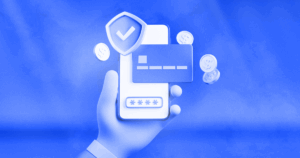Payment fraud is not a joke these days. In 2024, the global cost of data breaches reached $5 million. This new tendency makes businesses search for secure payment systems to shield sensitive information and win over public trust. Whether you operate in retail, technology, healthcare, or any other industry, you require a solid gateway for all financial operations. What does secure payment mean? How do you want financial things to work for your company? What service can help you achieve the desired result? In this article, we will discuss how to ensure smooth transactions.
Secure payments are critical to any company handling online transactions. A secure payment system (SPS) enables the uninterrupted funds processing. It keeps personal data strictly private, without exposing the details during checkouts. Its key principles include:
These key principles are mandatory for a secure payment system. With the right approach, businesses can become a safe place for consumer’s finances.
Whether you’re a big or small company, payment security works much the same way for everyone. You need to build a certain infrastructure that would leave no space for potential dangers. Once you’ve figured out the secure payment meaning, learn how to make the right system work within your industry. The collected knowledge will help you build a proper system for accepting online payments.

PayAdmit’s gateway manages digital payments by encoding financial details and using fraud prevention tools. Here is how the average transaction works:
The secure payment page should be able to recognize fraud. Here are the key measures:
Encryption is a mechanism for transforming plain data into unique code that would be hard to decode for hackers. PayAdmit maintains the integrity of sensitive data with the Comodo SSL certificate, which has become a quality indicator for many organizations. Direct data transfer becomes possible thanks to the TLS protocol.
Tokenization transforms sensitive data, such as bank card details, into unique tokens. These tokens have no unique value on their own, which makes them useless without the decryption keys. PayAdmit applies this technique to track and eliminate suspicious activity.
Securing payments from data breaches is a significant aspect of modern business. Organizations must ensure they are not transacting with suspicious entities. To reduce potential threats, companies must adopt an effective approach and form more than a few security layers.
PayAdmit’s Cashier Service is equipped with integrated fraud prevention tools that ensure all transactions are processed safely and reliably. It supports a built-in Address Verification System (AVS), which verifies the billing address provided by the cardholder against the bank’s data, helping block suspicious or mismatched transactions.
Through this service, PayAdmit also applies multiple security layers, including encryption protocols (SSL/TLS), two-factor authentication (2FA), and real-time transaction monitoring. These features significantly reduce the risk of unauthorized access and fraudulent activity, protecting merchants and end-users alike.
Additionally, the Cashier Service is fully PCI DSS Level 1 compliant, which means it adheres to the highest international standards for secure payment processing and cardholder data protection. This gives businesses confidence in handling sensitive financial data while maintaining regulatory compliance.
By combining intelligent tools with robust infrastructure, PayAdmit’s Cashier Service provides a powerful solution for safeguarding online payments against modern fraud risks.
A secure payment gateway like PayAdmit guarantees smooth funds processing for small and large businesses with the products like Cashier Service, Payment bridge and White Label. But how do they manage to deliver a great result? Here are the main benefits:
Online gateways like PayAdmit have become quite popular lately. No need to mess around with multiple platforms. Instead, you can make different types of transactions in one place. This makes things easier for POS vendors much easier. Let’s see how you can choose the most suitable payment solution without risking financial data.

When choosing a secure payment solution, companies should assess their security goals. Different industries have specific public demands and legal regulations. Estimate the approximate number of transactions to be processed daily and/or monthly. Check the payment methods widely admired by consumers. What is Secure Pay? What is EMV (Europay, Mastercard, and Visa)? Figure out how they work and whether they can do any good to your business. Then, look through the industry’s regulations.
Security is a critical element of funds processing. Ensure the payment solution meets the industry’s security standards and protects critical financial records. The selected tool can be integrated into your existing systems, such as e-commerce platforms and contactless POS systems.
Many security features ensure that payments via gateways are completed safely. Let’s look into these features:

If you are looking for the best way to implement a secure payment process, you are in the right place. Transform your company into a highly respected partner using the guidance of PayAdmit. Here is how we can help you:
PayAdmit helps businesses accept all payment methods to fuel market expansion. With years of experience in the financial field, our specialists know how to navigate risk management efficiently. Learn how we can secure your payment systems today!